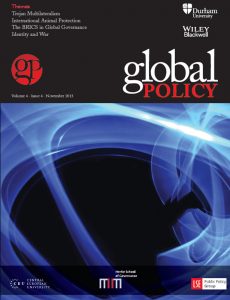Cyborg Systems: Sociology's Proper Unit of Analysis
The increasing centrality of the Internet in our daily lives has precipitated a spate of theorizing about how we – as humans and as a society – are changing (or not) due to the constant technological mediation of our most basic interactions and activities. Let’s face it: This sort of theorizing is populated mostly by men of considerable privilege (with some very notable exceptions). A cynic might hold that the problems concerning human techno-social interactions are relatively insignificant compared to...







1540-6237/asset/SSSA_Logo-RGB.jpg?v=1&s=c337bd297fd542da89c4e342754f2e91c5d6302e)